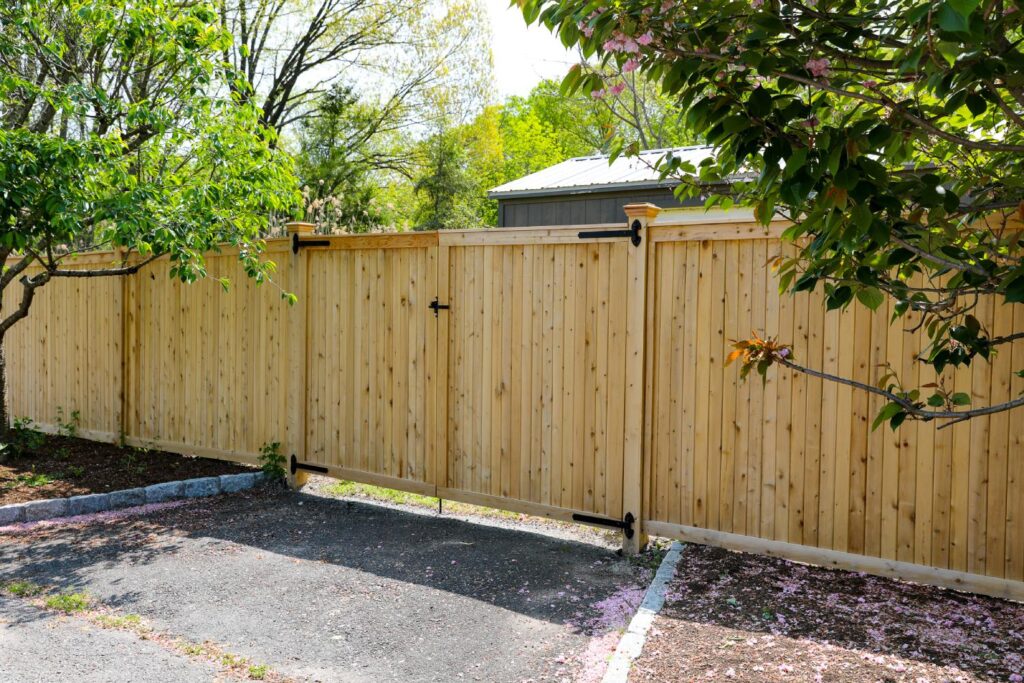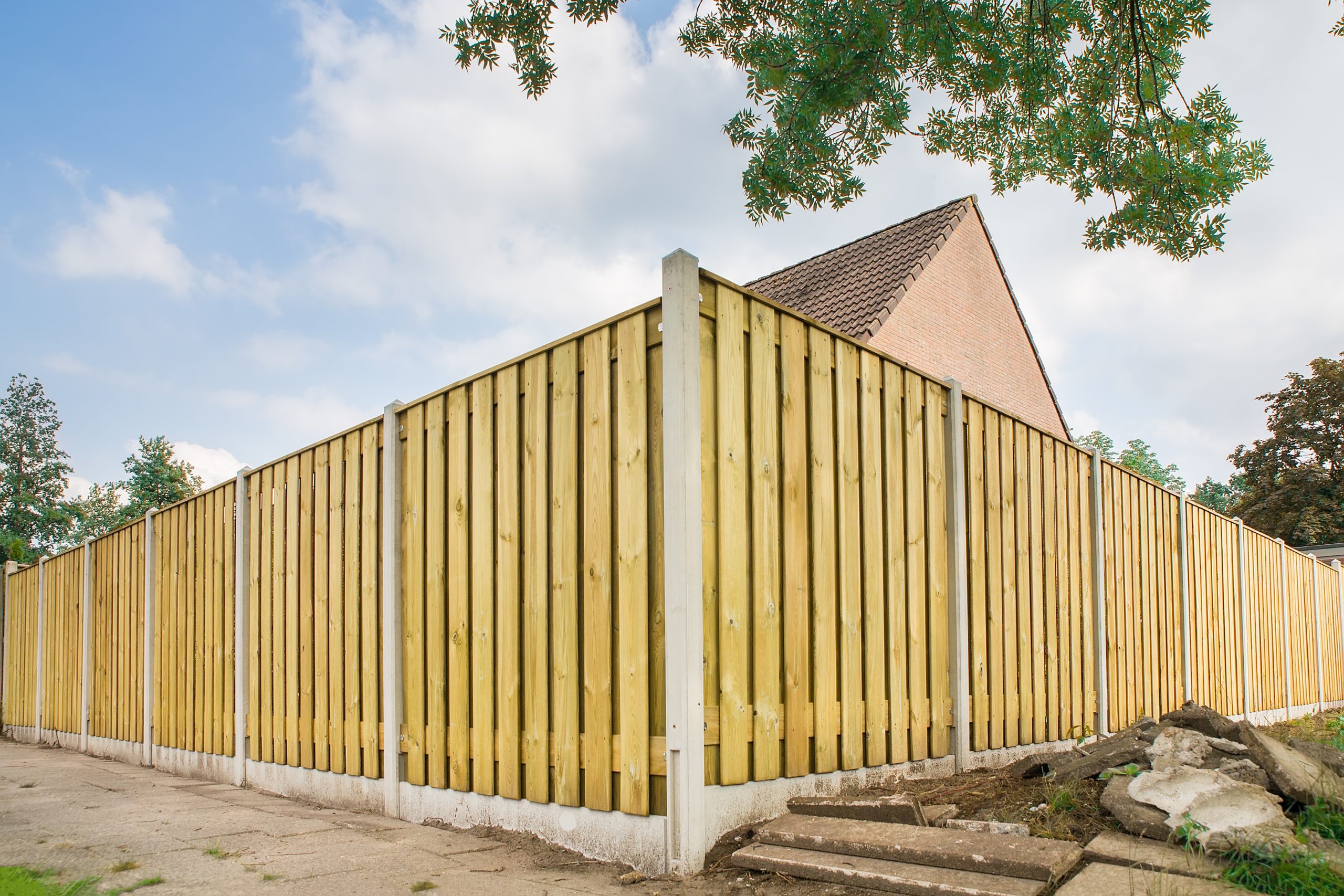All Categories
Featured
When you determine to mount a fence around your household property, it's necessary to recognize the license demands details to your location. Right here's a detailed appearance at the licenses you might require for fence installment.
Why Do You Need an Authorization for Fencing Installment? A fence is greater than simply a barrier between residential or commercial properties-- it can influence safety, home worth, appearances, and also environmental conditions. City governments need licenses to make certain that fencings satisfy specific standards and do not cause problems for energies, next-door neighbors, or the area as a whole. Licenses also make sure that the installment follows zoning laws, building codes, and safety regulations.
![]()
Kinds Of Licenses You May Need. Building Authorization. A structure license is one of the most typical authorizations needed for fence installment. If you're developing a fence over a specific height (commonly over 6 feet), you'll likely need a structure license.
Zoning Authorization. Zoning legislations regulate exactly how land is utilized in a particular location, and they include regulations concerning fences. A zoning license guarantees your fencing conforms with height, place, and problem policies. Fencings might require to be established back a certain distance from sidewalks, roadways, or residential or commercial property lines to avoid blockage or disturbance with energies. In some instances, zoning laws can additionally specify which materials are permitted.
HOA Authorization. You might require to look for approval before mounting a fence if your residential or commercial property is part of a house owners association (HOA) HOAs normally have guidelines that control the looks and structure of fencings to guarantee they are in harmony with the neighborhood. You could require to send your strategies for authorization, and the HOA may restrict fence design, material, or height.
Specialty Permits. In some locations, there may be additional licenses required for specific situations. If your fence is near a secured ecological location or located in a flood area, you might require to acquire specialized authorizations related to environmental effect. Similarly, if the fencing remains in a location with underground energies, you may need to obtain clearance to avoid harmful pipelines or cables.
![]()
Easement or Energy Company Authorization. Prior to mounting a fencing, it's critical to inspect whether the residential or commercial property includes an easement, such as an energy easement, which might influence where you can position your fencing. Easements are areas of land marked for public or exclusive utilities, and you may need consent from the utility company or various other authority to develop within this location.
How to Figure Out What Permits You Required. To make sure that you're adhering to all the required guidelines, below's exactly how you can determine the certain licenses required for your fencing setup:
![]()
Browse Through Your City Government Office: The primary step is to get in touch with your regional structure or zoning division. Lots of cities and areas have standards offered online that define what kinds of authorizations are required for fence installment. Otherwise, calling or checking out the office personally can aid clear up the process. Check Your City's Site: Numerous districts give information about fencing setups and the permits needed through their main sites. Some websites also enable you to submit applications on-line. Consult a Fence Installation Professional: If you're uncertain about regional policies, a professional fence service provider can aid. They are familiar with the permitting process and can lead you via the steps. The Consequences of Not Getting a License. Falling short to safeguard the needed licenses before installing a fence can result in significant effects. You may be fined or required to get rid of the fence entirely.
Verdict. Setting up a fence around your home can include both safety and curb appeal, yet it's important to guarantee you're following the legal actions in the procedure. Investigating the specific authorization requirements for your area, including building authorizations, zoning laws, HOA approval, and utility authorizations, will certainly assist ensure your fence installment goes smoothly. Putting in the time to comprehend these needs now can save you from expensive mistakes and prospective lawful problems down the line.
Why Do You Need an Authorization for Fencing Installment? A fence is greater than simply a barrier between residential or commercial properties-- it can influence safety, home worth, appearances, and also environmental conditions. City governments need licenses to make certain that fencings satisfy specific standards and do not cause problems for energies, next-door neighbors, or the area as a whole. Licenses also make sure that the installment follows zoning laws, building codes, and safety regulations.

Kinds Of Licenses You May Need. Building Authorization. A structure license is one of the most typical authorizations needed for fence installment. If you're developing a fence over a specific height (commonly over 6 feet), you'll likely need a structure license.
Zoning Authorization. Zoning legislations regulate exactly how land is utilized in a particular location, and they include regulations concerning fences. A zoning license guarantees your fencing conforms with height, place, and problem policies. Fencings might require to be established back a certain distance from sidewalks, roadways, or residential or commercial property lines to avoid blockage or disturbance with energies. In some instances, zoning laws can additionally specify which materials are permitted.
HOA Authorization. You might require to look for approval before mounting a fence if your residential or commercial property is part of a house owners association (HOA) HOAs normally have guidelines that control the looks and structure of fencings to guarantee they are in harmony with the neighborhood. You could require to send your strategies for authorization, and the HOA may restrict fence design, material, or height.
Specialty Permits. In some locations, there may be additional licenses required for specific situations. If your fence is near a secured ecological location or located in a flood area, you might require to acquire specialized authorizations related to environmental effect. Similarly, if the fencing remains in a location with underground energies, you may need to obtain clearance to avoid harmful pipelines or cables.

Easement or Energy Company Authorization. Prior to mounting a fencing, it's critical to inspect whether the residential or commercial property includes an easement, such as an energy easement, which might influence where you can position your fencing. Easements are areas of land marked for public or exclusive utilities, and you may need consent from the utility company or various other authority to develop within this location.
How to Figure Out What Permits You Required. To make sure that you're adhering to all the required guidelines, below's exactly how you can determine the certain licenses required for your fencing setup:

Browse Through Your City Government Office: The primary step is to get in touch with your regional structure or zoning division. Lots of cities and areas have standards offered online that define what kinds of authorizations are required for fence installment. Otherwise, calling or checking out the office personally can aid clear up the process. Check Your City's Site: Numerous districts give information about fencing setups and the permits needed through their main sites. Some websites also enable you to submit applications on-line. Consult a Fence Installation Professional: If you're uncertain about regional policies, a professional fence service provider can aid. They are familiar with the permitting process and can lead you via the steps. The Consequences of Not Getting a License. Falling short to safeguard the needed licenses before installing a fence can result in significant effects. You may be fined or required to get rid of the fence entirely.
Verdict. Setting up a fence around your home can include both safety and curb appeal, yet it's important to guarantee you're following the legal actions in the procedure. Investigating the specific authorization requirements for your area, including building authorizations, zoning laws, HOA approval, and utility authorizations, will certainly assist ensure your fence installment goes smoothly. Putting in the time to comprehend these needs now can save you from expensive mistakes and prospective lawful problems down the line.
Latest Posts
Discover Special Auto Repair Deals in Chicago at Montclare Auto Repair
Published Jun 01, 25
1 min read
Uncover the Leading Auto Repair Discounts in Montclare, Chicago
Published May 27, 25
1 min read
Don’t Miss Limited-Time Auto Repair Specials in Chicago at Montclare Auto Repair
Published May 25, 25
1 min read
More
Latest Posts
Discover Special Auto Repair Deals in Chicago at Montclare Auto Repair
Published Jun 01, 25
1 min read
Uncover the Leading Auto Repair Discounts in Montclare, Chicago
Published May 27, 25
1 min read
Don’t Miss Limited-Time Auto Repair Specials in Chicago at Montclare Auto Repair
Published May 25, 25
1 min read